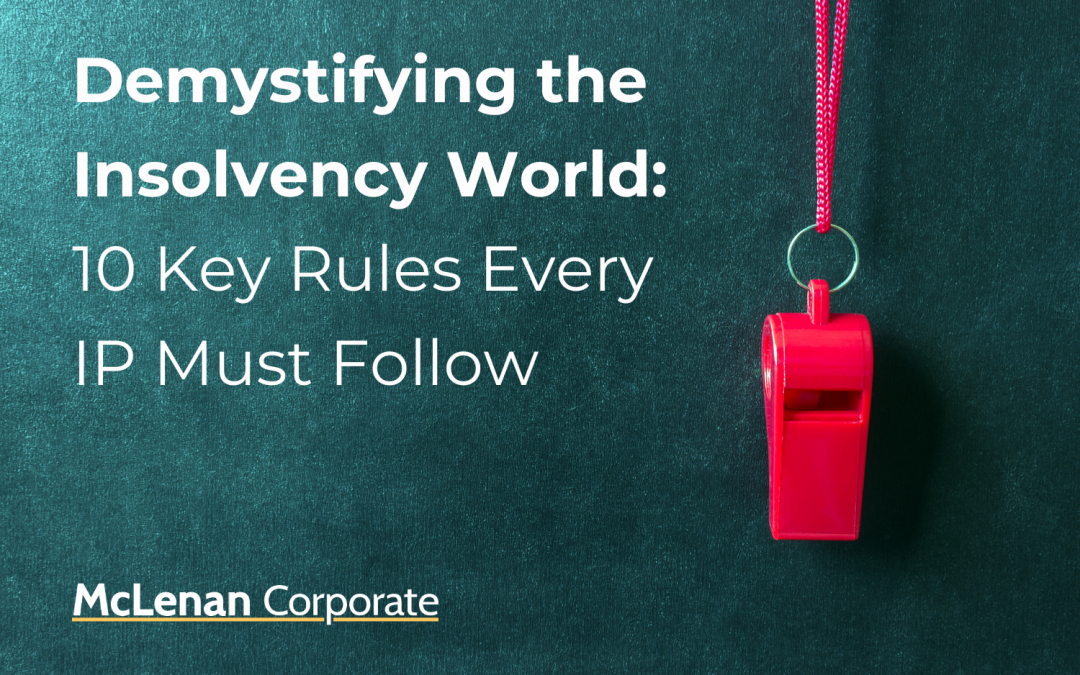Being an Insolvency Practitioner (IP) in Scotland requires expert knowledge. While the role demands a deep understanding of financial structures and business operations, IPs must also be well-acquainted with the key rules that guide their profession. Here, we explore the fundamental regulations every Scottish IP must adhere to.
1. Licensure and Regulation
In Scotland, IPs must be authorised to act on insolvency cases. This authorisation is acquired from recognised professional bodies, such as the Institute of Chartered Accountants in Scotland (ICAS) or the Insolvency Practitioners Association (IPA).
2. Impartiality and Integrity
IPs are bound by the principle of impartiality. Whether dealing with creditors, shareholders, or employees, an IP must approach each case without prejudice, ensuring all parties are treated fairly.
3. Keeping Abreast of Legislation
Scottish insolvency law is subject to change, and IPs are responsible for staying updated. Ignorance is no excuse, and IPs must be aware of all the latest regulations, and amendments to effectively advise and act.
4. Confidentiality is Key
Owing to the sensitive nature of insolvency cases, confidentiality is paramount. IPs are privy to financial details, business strategies, and sometimes personal information. This data must be treated with the utmost discretion.
5. Duty to Maximise Creditor Returns
At the heart of an IP’s role is the duty to secure the best possible outcome for creditors. This might involve asset sales, restructuring, or negotiations, but the primary objective remains the same: maximise returns.
6. Robust Record Keeping
Precise and methodical documentation is non-negotiable. Whether it’s for creditor meetings, asset valuations, or payment distributions, IPs must maintain meticulous records to ensure transparency and accountability.
7. Professional Development and Training
The IP realm is intricate and evolving. To ensure they’re at the top of their game, IPs should engage in continuous professional development, attending seminars, courses, and workshops relevant to the field.
8. Ethical Considerations
Insolvency often involves tough decisions. IPs are bound by a code of ethics, ensuring they operate with integrity, honesty, and transparency, even when faced with challenging dilemmas.
9. Fee Transparency
It’s essential for IPs to be transparent about their fees. Clear communication with stakeholders about remuneration and costs ensures there are no surprises and fosters trust.
10. Understanding Cross-Border Nuances
Scotland has its insolvency laws and procedures, but IPs must also be cognisant of UK-wide regulations and any cross-border implications, especially in cases involving businesses operating beyond Scottish borders.
In Summary
Being an Insolvency Practitioner in Scotland is not just about understanding numbers and assets, it’s about navigating a world governed by strict rules, ethical considerations, and continuous learning. By adhering to these key rules, IPs can ensure they provide a quality service, uphold their professional reputation, and navigate the complexities of insolvency with skill and expertise.

